Tokyo Institute of Technology: Statistics
Updated:


| Position | Category |
|---|---|
| #272 of 14,131 | In the World |
| #33 of 5,830 | In Asia |
| #10 of 719 | In Japan |
| #3 of 84 | In Tokyo |
| #5 of 1,015 | For Polymer science and Plastics engineering |
| Top100 | For 38 other topics |
Quick Review
- Acceptance rate
- 10%
- Type
- Non-profit
- Funding
- Public-private
partnership - Highest Degree
- Doctorate
- Website
- www.titech.ac.jp
- Languages
- Japanese;English
Acceptance rate & Admissions
| Acceptance Rate | 10% |
|---|---|
| Admissions Requirements | Graduation from high school or recognized equivalent and entrance examination |
| Academic Calendar | April to March (April - September; October-March) |
We've calculated the 10% acceptance rate for Tokyo Institute of Technology based on the ratio of admissions to applications and other circumstantial enrollment data. Treat this information as a rough guide and not as a definitive measure of your chances of admission. Different programs may have significantly varying admissions rates.
Research profile
Tokyo Institute of Technology is a world-class research university with 155,544 scientific papers published and 3,192,371 citations received. The research profile covers a range of fields, including Physics, Engineering, Chemistry, Quantum and Particle physics, Materials Science, Biology, Organic Chemistry, Environmental Science, Computer Science, and Biochemistry.
Tokyo Institute of Technology majors
by publication & citation count
Annual publication & citation counts
| Year | Publications | Citations |
|---|---|---|
| 1992 | 1806 | 14967 |
| 1993 | 1964 | 15653 |
| 1994 | 1997 | 16617 |
| 1995 | 1955 | 18334 |
| 1996 | 2348 | 20125 |
| 1997 | 2402 | 21571 |
| 1998 | 2689 | 24632 |
| 1999 | 2824 | 28645 |
| 2000 | 3188 | 32110 |
| 2001 | 3253 | 35659 |
| 2002 | 4877 | 46234 |
| 2003 | 4502 | 48786 |
| 2004 | 4407 | 53016 |
| 2005 | 4708 | 63191 |
| 2006 | 4835 | 69235 |
| 2007 | 4679 | 74939 |
| 2008 | 4640 | 81819 |
| 2009 | 4664 | 89430 |
| 2010 | 4475 | 97824 |
| 2011 | 4787 | 109890 |
| 2012 | 4488 | 116986 |
| 2013 | 4459 | 124522 |
| 2014 | 4650 | 129800 |
| 2015 | 4726 | 134043 |
| 2016 | 4633 | 141913 |
| 2017 | 4541 | 145662 |
| 2018 | 4710 | 157646 |
| 2019 | 4866 | 166572 |
| 2020 | 4923 | 183270 |
| 2021 | 5046 | 201651 |
| 2022 | 4499 | 191055 |
| 2023 | 5920 | 194762 |
| 2024 | 3310 | 186599 |
Programs and Degrees
The table below displays academic fields with programs and courses that lead to Bachelor's, Master's, and Doctorate degrees offered by Tokyo Institute of Technology.
Note that the table provides a general overview and might not cover all the specific majors available at the university. Always visit the university's website for the most up-to-date information on the programs offered.
| Programs | Bachelor | Master | Doctoral |
|---|---|---|---|
| Art & Design | No | No | No |
| Biology | Yes | Yes | Yes |
| Business | No | Yes | Yes |
| Chemistry | Yes | Yes | Yes |
| Computer Science | Yes | Yes | Yes |
| Economics | No | No | No |
| Engineering | Yes | Yes | Yes |
| Environmental Science | Yes | Yes | Yes |
| Liberal Arts & Social Sciences | No | No | No |
| Mathematics | Yes | Yes | Yes |
| Medicine | No | No | No |
| Physics | Yes | Yes | Yes |
| Psychology | No | No | No |
| Gakushi | Architecture, Astronomy and Space Science, Biological and Life Sciences, Building Technologies, Chemical Engineering, Chemistry, Civil Engineering, Computer Science, Control Engineering, Earth Sciences, Economics, Electrical Engineering, Electronic Engineering, Engineering, Environmental Engineering, Industrial Engineering, Information Technology, Materials Engineering, Mathematics, Mathematics and Computer Science, Mechanical Engineering, Physics, Technology, Telecommunications Engineering |
|---|---|
| Shushi | Architecture, Astronomy and Space Science, Biological and Life Sciences, Building Technologies, Chemical Engineering, Chemistry, Civil Engineering, Computer Science, Control Engineering, Earth Sciences, Economics, Electrical Engineering, Electronic Engineering, Engineering, Environmental Engineering, Environmental Studies, Industrial Engineering, Information Technology, Management, Materials Engineering, Mathematics, Mathematics and Computer Science, Mechanical Engineering, Physics, Social Sciences, Technology, Telecommunications Engineering |
| Hakase | Architecture, Astronomy and Space Science, Biological and Life Sciences, Building Technologies, Chemical Engineering, Chemistry, Civil Engineering, Computer Science, Control Engineering, Earth Sciences, Economics, Electrical Engineering, Electronic Engineering, Engineering, Environmental Engineering, Environmental Studies, Industrial Engineering, Information Technology, Management, Materials Engineering, Mathematics, Mathematics and Computer Science, Mechanical Engineering, Physics, Social Sciences, Technology, Telecommunications Engineering |
Tokyo Institute of Technology alumni
-
Satoru Iwata

- Occupations
- engineercomputer scientistgame programmerentrepreneurvideo game producer
- Biography
-
Satoru Iwata was a Japanese businessman, video game programmer, video game designer, and producer. He was the fourth president and chief executive officer (CEO) of Nintendo from 2002 until his death in 2015. Iwata was a major contributor in broadening the appeal of video games by focusing on novel and entertaining games rather than top-of-the-line hardware.
-
Naoto Kan

- Occupations
- politicianuniversity teachertheoretical physicist
- Biography
-
Naoto Kan is a Japanese former politician who served as Prime Minister of Japan and President of the Democratic Party of Japan (DPJ) from June 2010 to September 2011.
-
Ōsumi Yoshinori
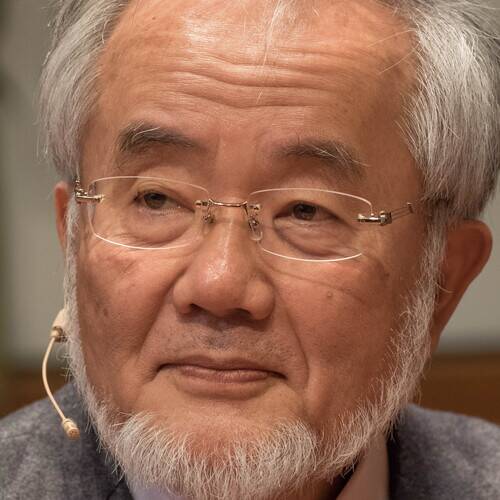
- Occupations
- biologist
- Biography
-
Yoshinori Ohsumi is a Japanese cell biologist specializing in autophagy, the process that cells use to destroy and recycle cellular components. Ohsumi is a professor at Institute of Science Tokyo's Institute of Innovative Research. He received the Kyoto Prize for Basic Sciences in 2012, the 2016 Nobel Prize in Physiology or Medicine, and the 2017 Breakthrough Prize in Life Sciences for his discoveries of mechanisms for autophagy.
-
Masao Yoshida
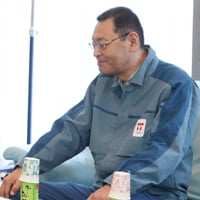
- Occupations
- engineer
- Biography
-
Masao Yoshida was a nuclear engineer who served as plant manager of the Tokyo Electric Power Company Fukushima Daiichi Nuclear Power Plant during the Fukushima nuclear disaster.
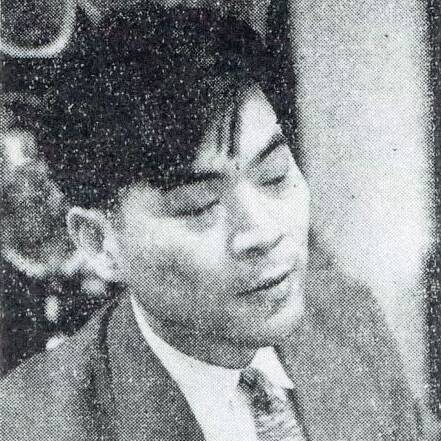
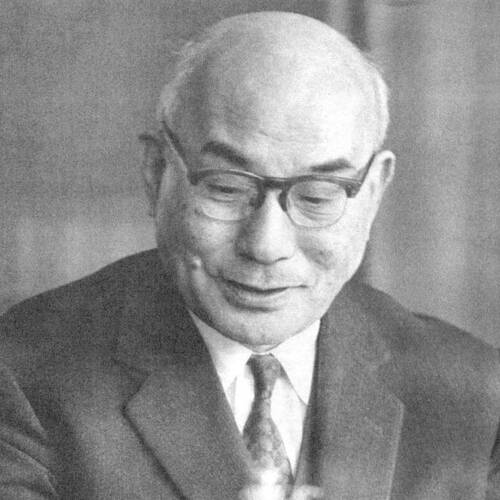
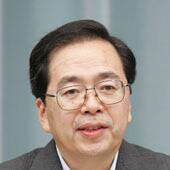
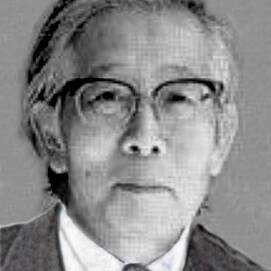

Tokyo Institute of Technology faculties and divisions
| Graduate School : Bioscience and Biotechnology | Bioengineering, Biological and Life Sciences, Biomedical Engineering, Molecular Biology |
|---|---|
| Graduate School : Decision Science and Technology | Industrial Engineering, Industrial Management, Social Sciences |
| Graduate School : Information Science and Engineering | Computer Science, Environmental Engineering, Information Sciences, Mathematics and Computer Science, Mechanical Engineering |
| Graduate School : Innovation Management | Engineering Management |
| Graduate School : Interdisciplinary Science and Engineering | Applied Chemistry, Applied Physics, Artificial Intelligence, Chemistry, Computer Engineering, Electronic Engineering, Energy Engineering, Environmental Engineering, Information Technology, Materials Engineering, Mechanical Engineering, Systems Analysis |
| Graduate School : Science and Engineering | Aeronautical and Aerospace Engineering, Applied Chemistry, Ceramics and Glass Technology, Chemical Engineering, Chemistry, Civil Engineering, Communication Studies, Construction Engineering, Development Studies, Earth Sciences, Electrical and Electronic Engineering, Electronic Engineering, Electronics and Automation, Materials Engineering, Mathematics, Mechanical Engineering, Metallurgical Engineering, Nuclear Engineering, Nuclear Physics, Physics, Polymer and Plastics Technology, Structural Architecture, Systems Analysis, Telecommunications Engineering |
| Research Division : Carbon Recycling and Energy | Chemistry |
| Research Division : Chemical Resources | Applied Chemistry, Chemistry, Inorganic Chemistry, Laboratory Techniques, Molecular Biology, Natural Resources, Organic Chemistry |
| Research Division : Foreign Language Research and Teaching | Foreign Languages Education |
| Research Division : Global Scientific Information and Computing | Computer Engineering, Information Technology |
| Research Division : Low Temperature Physics | Physics |
| Research Division : Materials and Structures | Building Technologies, Materials Engineering, Nanotechnology, Structural Architecture |
| Research Division : Nuclear Reactors | Energy Engineering, Nuclear Engineering, Safety Engineering |
| Research Division : Precision and Intelligence | Bioengineering, Biomedical Engineering, Information Sciences, Information Technology, Materials Engineering, Mechanical Engineering, Microelectronics |
| Research Division : Quantum Nanoelectronics | Nanotechnology |
| Research Division : Research and Development of Educational Technology | Educational Technology |
| School : Bioscience and Biotechnology | Bioengineering, Biological and Life Sciences, Biotechnology |
| School : Engineering | Aeronautical and Aerospace Engineering, Applied Chemistry, Architecture and Planning, Chemical Engineering, Civil Engineering, Computer Science, Construction Engineering, Electrical and Electronic Engineering, Electronics and Automation, Environmental Engineering, Industrial Engineering, Inorganic Chemistry, Mechanical Engineering, Metallurgical Engineering, Organic Chemistry, Polymer and Plastics Technology, Structural Architecture, Systems Analysis |
| School : Science | Chemistry, Earth Sciences, Information Sciences, Mathematics, Physics |
General information
| Alternative names | 東京工業大学 |
|---|---|
| Founded | 1881 |
| Accreditation | Ministry of Education, Culture, Sports, Science and Technology (MEXT) |
| Motto | Engineers of the Knowledge, Technology and Passion that Change our World |
| Colors | royal blue |
Location and contacts
| Address | 2-12-1 E3 Ookayama Meguro-ku Tokyo, 152-8550 Japan |
|---|---|
| City population | 14,265,000 |
